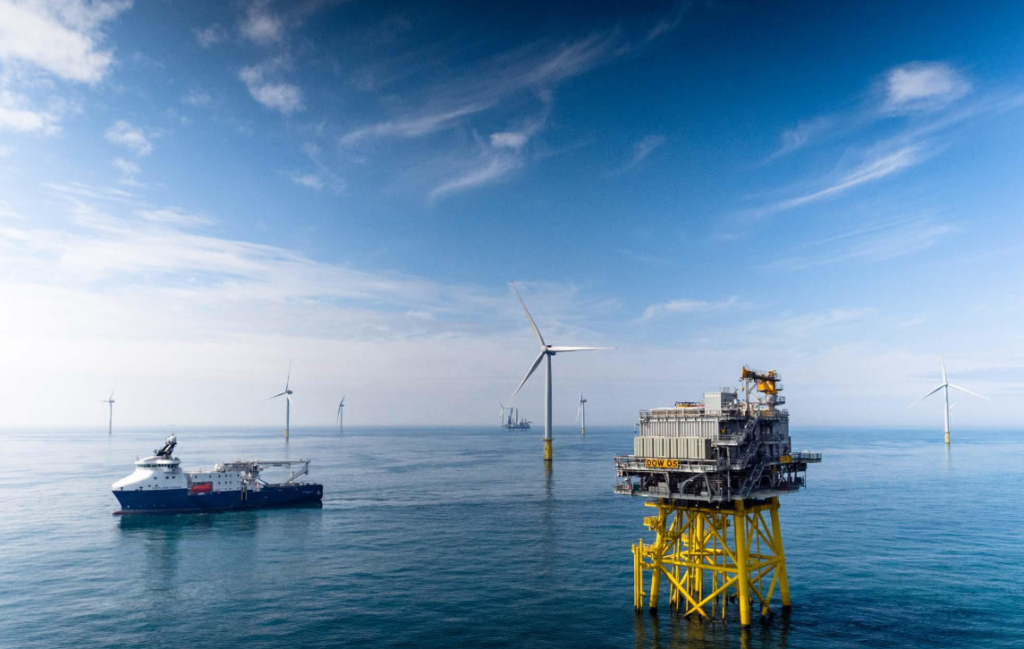
Hundreds of thousands of people will need to be recruited into the energy sector to reach the goal to cut emissions to net zero by 2050, a report for National Grid shows.
The company said its study shows the need to fill 400,000 positions in skilled tradespeople, engineers and other specialists across the country as part of the UK’s legal targets to drive greenhouse gas emissions.
Many people across the UK do want jobs with an environmental purpose, according to research by YouGov, which found 78% of people thought they should play a role in the UK’s journey to net zero.
More than half (57%) of people are interested in working for an organisation helping to deliver on the goal.
But the energy industry is facing the challenges of a looming retirement crunch, stiff competition with other sectors such as tech and finance, not enough young people choosing science, technology, engineering and maths, and a lack of women in the sector.
Some 117,000 of the new workers need to be employed by the sector in the next decade to help meet key milestones up to 2050, National Grid said.
New recruits will be needed to deliver projects such as offshore wind farms, technology to capture and store carbon emissions and enabling the grid to cope with more electric vehicles and heating.
Staff are needed for projects such as the London Power Tunnels, where National Grid has spent nearly £1 billion upgrading the high voltage cable network that runs round the north of the capital.
The cables in new tunnels which run 32 metres (105 ft) below street level are updating the grid to channel power from wind farms off the coast and cope with extra demand from charging electric cars and low carbon heating.
David Wright, chief engineer at National Grid, said: “Demand is going to go up massively because of population growth but also decarbonising Britain, with all of the electric vehicle infrastructure, and moving off gas for heating homes, which could be hydrogen or electric heating.
“We’re doing the replacement now with the future in mind.”
The next phase of the project will see cables in south London upgraded.
Mr Wright said there many different jobs that would need to be filled in the energy sector from cyber security and data engineering to tradespeople going into homes to replace old boilers with new technology.
He said momentum was now building, with more people who wanted to come into the energy industry.
Nathan Hunt, 17, from Cambridgeshire, who switched away from the A-levels and university route onto an advanced apprenticeship with National Grid after GCSEs, said addressing the climate crisis was part of his motivation.
“Personally I think it’s really important, I think we should leave the planet in a better state for future generations than we’ve got it in, we should improve it for future generations, not make it worse – and we need to do it now,” he said.
According to the report, jobs will come across the country, with an estimated 21,000 new recruits in the North East to deliver projects such as offshore wind and the interconnector off the coast of Blyth in Northumberland.
Almost 28,000 roles will be needed to work on projects including developing more offshore wind farms in the East of England, and the development of carbon capture and storage in the Yorkshire and Humber region could create 17,000 jobs.
In Scotland, offshore and onshore wind will help drive more than 48,000 jobs in Scotland and in Wales the move to low carbon will create 25,000 roles.
Nicola Shaw, executive director of National Grid, said: “Our research shows that to deliver net zero, the energy industry needs to recruit hundreds of thousands of people over the next 30 years – and that really is the tip of the iceberg in terms of the wider impact of net zero across other industries.
“The time is now for the sector to rise to the challenge and overcome the long-standing issues we face in recruiting a diverse workforce with the right skills to deliver on the UK’s ambitions.”
Recommended for you
